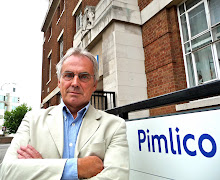During a BBC radio discussion yesterday on whether UK troops should be in Afghanistan, Nicky Campbell summed up the position of those opposing intervention with the term, ‘Charity begins at home’.
This diverted me from the weighty issue at hand to consider what we mean by this convenient aphorism. I soon realised that it is a call not to begin giving at home but but to stop giving to those who are not ‘at home’. It’s distinctly uncharitable.
When Terence first uttered the phrase in the second century BC, he was underpinning Rome's famous lack of charity for others. Fair enough. Looking after our own is a primary obligation and one with which we willingly comply because it matches natural motivation and feels right.
But this isn’t charity; it’s self-interest.
As in any small quest for semantic clarity, here are the inevitable references from the Oxford English Dictionary:
Charity
• “Voluntary giving of help or money to those in need” – nothing about ‘only to those close to us’
• “Love of humankind” – nothing about ‘only of our own kind’.
Even in difficult times, it would be a pity to forget the needy strangers, whose only link to us may be their fellow humanity. The needs of others and our own are rarely that incompatible. However, balance is essential. In Bleak House, Mrs Pardiggle’s misplaced preoccupation with the wants of others blinds her to the most important duty of looking after her own family. She is sustained by the feel-gooding she derives from do-gooding. Dickens’ own comment was, “Charity begins at home, and justice begins next door.”
So, what outcomes from these brief musings? The first is a belated realisation that ‘charity begins at home’ is oxymoronic, because charity can’t exist once we raise the drawbridge on those who are outside ‘home’. The second is that when I next say, ‘no’ (as I often do) to a charitable request or impulse, I’ll choose more appropriate words.
And I'd like to think that the Samaritan didn't cross over to help the injured stranger because it would make him a Good Samaritan but because he knew that charity didn’t begin on his side of the road.
Subscribe to:
Post Comments (Atom)


No comments:
Post a Comment